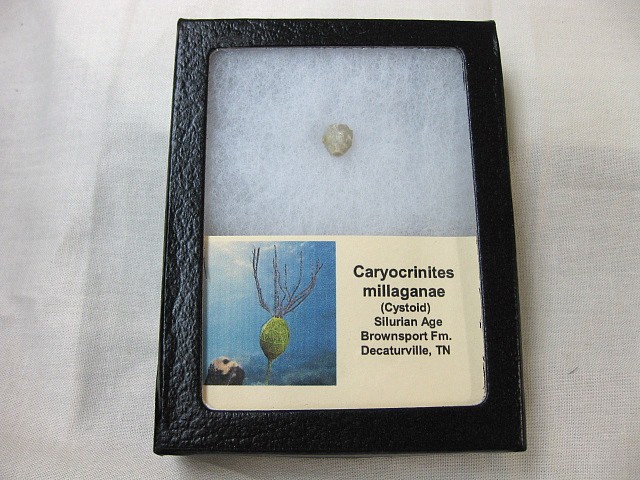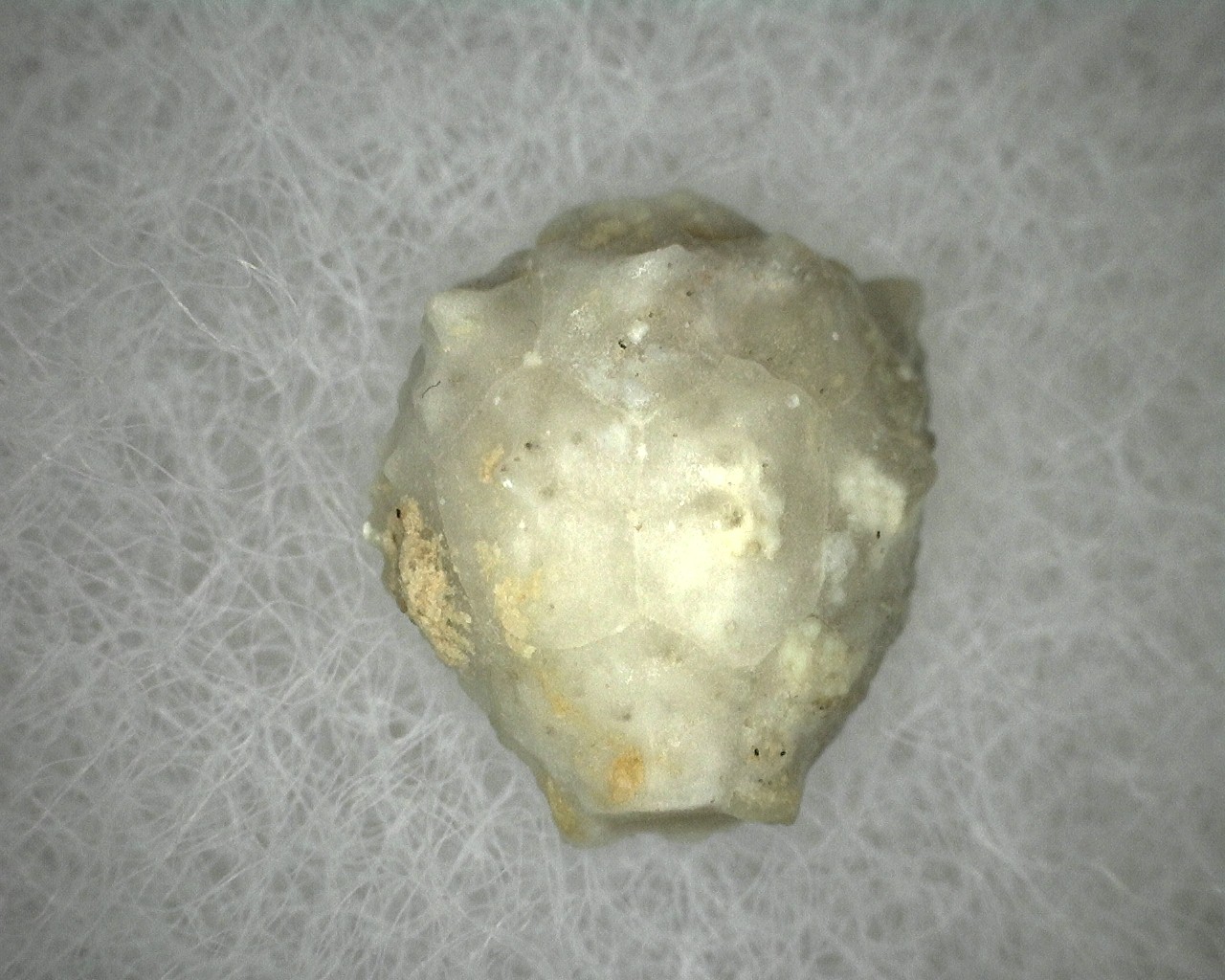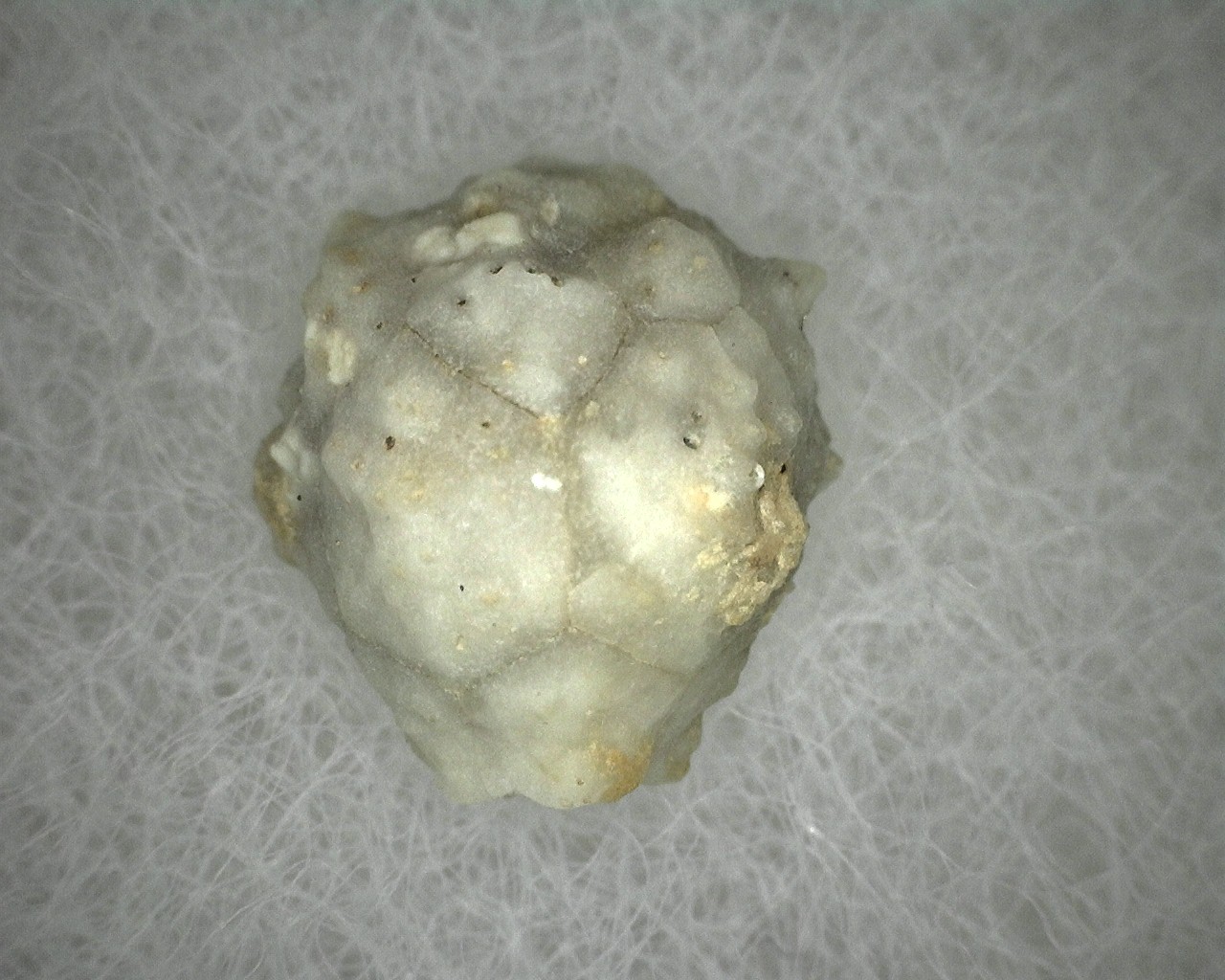Description
- Caryocrinites millaganae
- Cystoid
- Silurian Age
- Brownsport Formation
- Decaturville, Tennessess
- Cystoid measures approx. 11/32″ long
- Specimen will come in the 3.25″ x 4.25″ Riker Mount with Label as Shown
Cystoidea or cystoids, is a class of extinct echinoderms in the sub-phyla Blastozoa, that lived attached to the sea floor by stalks. They existed during the Paleozoic Era, in the Middle Ordovician and Silurian Periods, until extinction in the Devonian Period. Superficially, cystoids resembled crinoids, but they had an ovoid, rather than cup-shaped, body. The mouth was at the upper pole of the body, with the opposite end attached to the substratum, often by a stalk, although some stalkless species did exist. The anus lay on the side of the body. The most distinctive feature of cystoids was the presence of a number of pores in the rigid skeleton encasing the body. These were most likely respiratory in nature, allowing fluid to flow in or out of the body. In some species, the pores were clustered in distinct regions, but in others they were distributed quite widely over the body surface.







